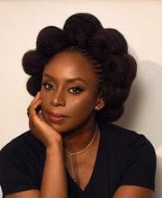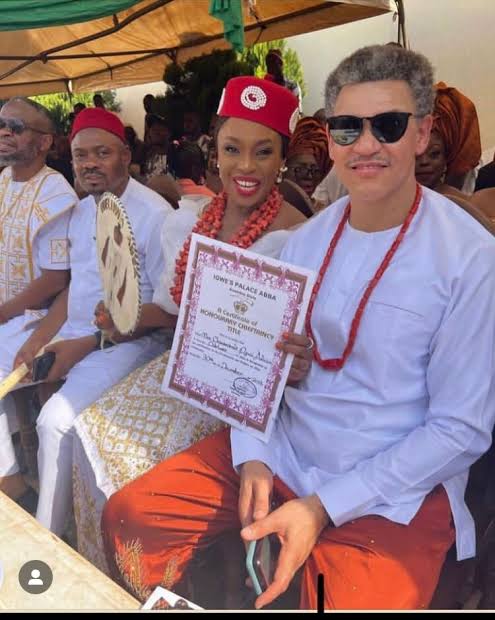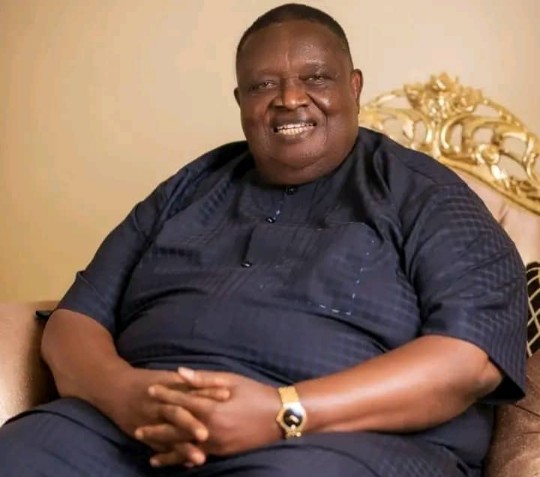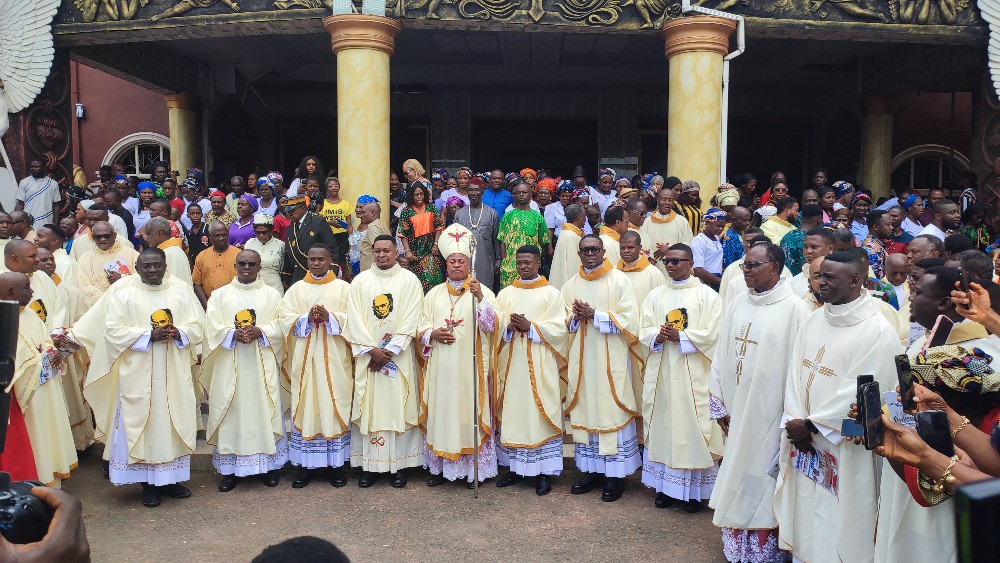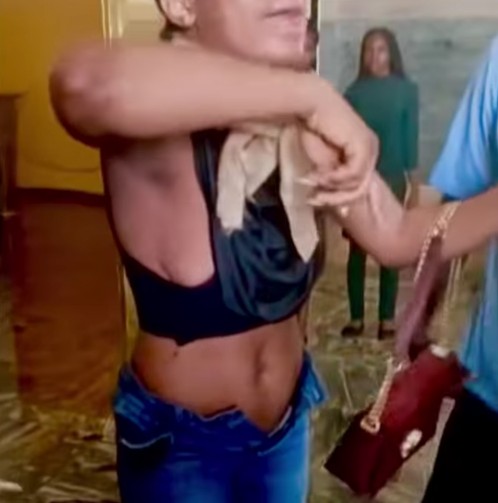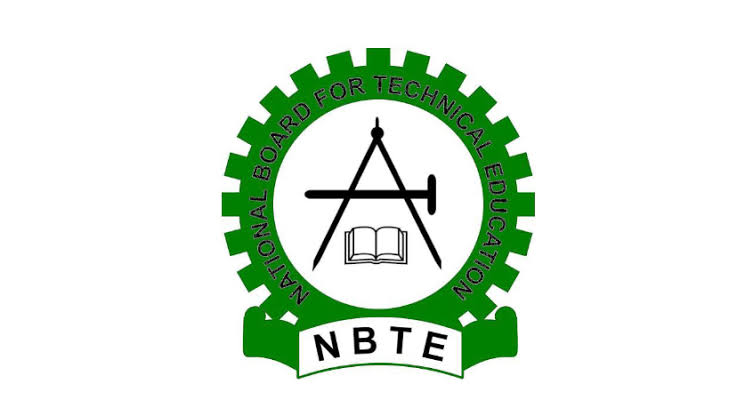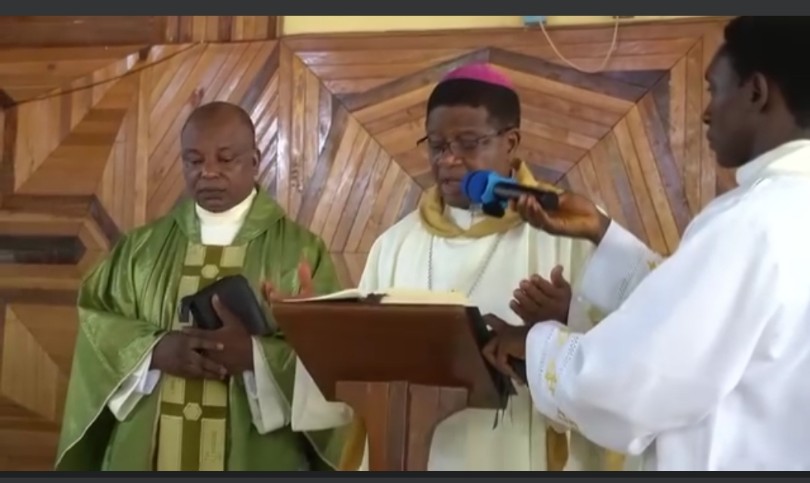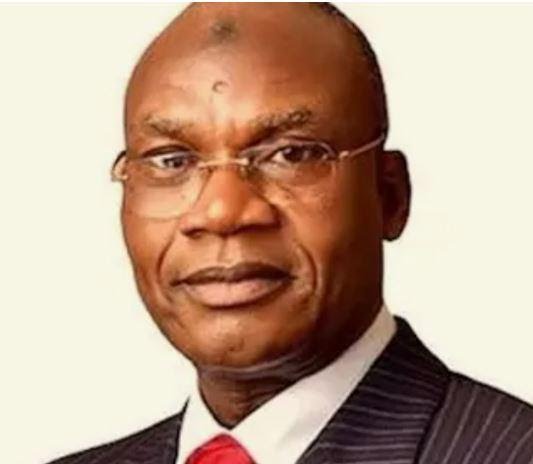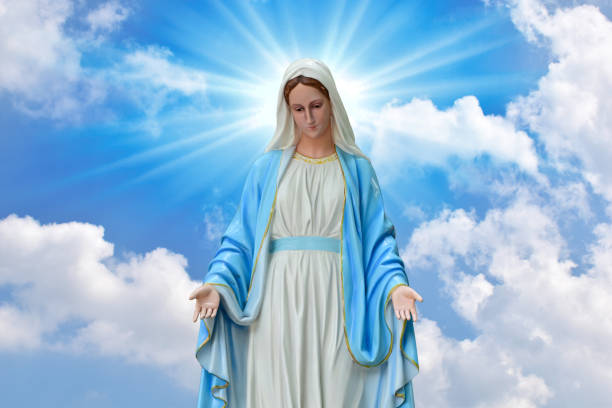
Igbo concept of "di bu ugwu nwanyi" and Chimamanda Adichie's false contraption of the choice of her father's surname against that of her husband
Tuesday May 28, 2024 22:01 pm
By Nwankwo T. Nwaezeigwe, PhD, DD Odogwu of Ibusa
Online,
Commentary
I read with melancholy befuddlement Chimamanda Adichie’s most embarrassing article ever to emanate from an Igbo intellectual feminist titled, “EMBRACING IGBO HERITAGE: Why I Chose to Keep My Father's Surname.” To quote her:
“I didn't change my surname to my husband's surname because I love my surname, and all my documents bear my father's surname. I don't have the strength to run around to change it. People often tell me that I am abusing Igbo culture by still bearing my father's surname. I laugh when I hear people say this. But the fact is that those women who bear their husband's surname are the ones abusing Igbo culture. In pre-colonial Igbo culture, women didn't bear their husband's surname; they bore their father's surname. Everything changed when the British colonized us. We then abandoned our own culture and followed British culture. In pre-colonial Igbo society, if a married woman died, her corpse would be returned to her father's home to be buried there. In pre-colonial Igbo culture, women belonged to their father's place; their husbands just borrowed them for both to live together and have children.”
I don’t know when Miss Chimamanda Adichie has become an expert in Igbo history and culture outside her literary escapades to the extent of assuming the champion of fabricated and poisonous concepts of Igbo feminism. However, to begin by positioning her in her chosen social context, I have chosen to address her as “Miss” rather than “Mrs.”, because in the eyes of Igbo ancestors and by the letters of the time-honored Igbo customs and tradition Miss Chimamanda Adichie remains unmarried.
Hear her: “I didn't change my surname to my husband's surname because I love my surname.” Does this statement not smack of naughty arrogance and abuse of the sacredness of marriage as defined respectively by Christian and Igbo worldviews from a woman who claims to be proudly Igbo and honorably married to a husband with masculine dignity and proud of his family heritage?
What indeed Miss Chimamada Adichie is telling the hosts of married Igbo women who adopted their husband’s names is that they never loved their fathers’ names and identities, neither are they proud of their family heritages. Moreover, one does not understand the exclusive heritage of having a Professor of Statistics as a father and a university Registrar as a mother that would make her abuse the manly integrity of her husband by refusing to adopt his surname in accordance with the dignity of a married Igbo woman.
Chimamanda Adichie is neither the greatest educated high-profile Igbo woman nor the most published female Igbo novelist. Buchi Emechete from Ibusa retained her maiden name because she officially divorced her husband Mr. Isichei in the United Kingdom. Flora Nwapa from Oguta changed her name to Flora Nwakuche on her marriage to Mr. Gogo Nwakuche. Flora Nwakuche was the greatest of all African Female Writers and, as Commissioner for Health and Social Welfare in East Central State, she was known as Mrs. Flora Nwakuche and not Nwapa, even though she retained Nwapa as her literary name.
Miss Chimamanda Adichie is yet to divorce her husband like Buchi Emecheta. The cases of Prof Ndi Okereke-Onyiuke and Dr. Ngozi Okonjo-Iweala should infinitely serve as a moral instruction to Miss Chimamanda Adichie. It should have been her private business if she had kept her choice private, but to wrongly and poisonously associate it with time-honored Igbo customs and tradition is an insult to the sacredness of marriage among the Igbo.
Dr. Ngozi Okonjo-Iweala, so far the greatest Igbo woman in contemporary times and by the facts of her personal carriage the most humble of all contemporary married Igbo women of high-profile achievers, took special permission from her husband to attach her father’s name in hyphenated format to her husband’s name. Her father was a renowned Professor of international repute and traditional ruler of her Ogwashi-Uku town, and her mother was equally a Professor.
Dr. Ngozi Okonjo-Iweala is by right of ancestral heirloom a Princess, yet she never addressed herself as such. All these parental achievements did not intoxicate her for once. Even in her pinnacle of achievement both as a Minister of the Federal Republic of Nigeria, and currently Director General of World Trade Organization, Dr. Ngozi Okonjo-Iweala still enters her kitchen to prepare food for her husband and adequately serves him as a humble and loving Igbo wife would do to her husband.
May be Dr. Ngozi Okonjo Iweala and other Igbo women had the strength to run around and change their documents to their Husband’s name, while Chimamanda Adichie has no such strength because of the insurmountable compendium of her library of documents. As she put it in her own words: “I don't have the strength to run around to change it.”
For the interest of future Igbo generations and especially those Igbo women currently drunken with despicable wine of Western feminism and licentious American freedom, marriage remains a sacred institution among the Igbo. And the fountain of this marriage is the man, on whose societal legitimacy a woman stands. In other words, the traditional legal identity of a fulfilled woman in Igboland is defined by her husband and not her father. This is embodied in the Igbo concept of “Di bu Ugwu Nwanyi” (husband is the pride of a woman). This concept is not only manifested in deeds but in definite identity.
This definite identity is expressed by the prefixed title of “Nwuye” (wife); in contradistinction to Ada (daughter). In other words, even though a woman is entitled to both identities, they cannot be applied at the same time. While a woman remains Ada to her father’s family, her identity changes to Nwunye once she becomes married. Thus by extension the term “Nwuye Anthony Nwaezeigwe” simply stands for Anthony Nwaezeigwe’s wife, which by Western acronym stands for “Mrs. Anthony Nwaezeigwe.”
In Ibusa where I come from, once a woman is married, her age notwithstanding, she automatically transforms to the dignified titles of “Okpoho-Oba” (Oba’s woman), meaning that she must be respected like the Wife of the Oba of Benin and, “Nwunye Madu”(Somebody’s wife), again a reminder that she is married and as such must be respected. In fact, up till the present moment, insulting a married woman, which is defined as “Ikwulu nwunye madu” attracts severe fines. Thus a woman’s dignity in the society is founded on her marital identity and not that of her father. This also explains why most of those prodigal Igbo women in the United States who kicked their husbands out their marital homes because of their enhanced incomes still retain their husbands’ surnames.
It is a truism that even till this modern age, the cardinal point of an Igbo woman’s achievement and fulfillment in life is measured not by her material acquisitions but her marital status. This is because the only place a woman has absolute control over her material possessions is at her marital family. Any other material possessions stored in her father’s house automatically belong to her paternal relatives and not her children; unless if tradition permits the adoption of her children into her paternal family. In that case, her children will have to adopt her father as their paternal father and hence surname. Beyond this exception, the woman has no ancestral inheritance in her father’s house. This is Igboland and not Yorubaland where a man’s apartment is shared room by room to both his sons and daughters after death.
Chimamanda Adichie’s insinuation that: “In pre-colonial Igbo culture, women didn't bear their husband's surname; they bore their father's surname. Everything changed when the British colonized us”; is the height of calculated fabrication of feminine identity construction in pre-colonial Igbo society. In the first place, the idea of surname in general is a totally European identity construction. So the claim that married women bore their father’s surname is false, unfounded and without basis in Igbo history and culture.
Once a woman is married in line with Igbo customary laws, she automatically changes her official customary identity from that of her father to that of her husband. Marriage under Igbo customs and tradition is not a social contract as defined by modern social sciences but a transformation from one family to another. For instance, when a woman is described as “Anasi”, it means she is the first or senior wife of her husband. In this case, can Chimamanda Adichie be addressed as “Anasi Chimamanda Adichie?” That will definitely amount to abomination. The only connection between the woman and her paternal family becomes defined by the gregarious Umuada group whose roles are infrequent and ad-hoc in character.
The only situations where a woman could retain her father’s identity both in pre-colonial times and present are, first, if she is unable to marry or got divorced without child; second, if in a situation where her father does not have a male child she is told to stay unmarried at her father’s household and procreate a male child to continue the family tree; and third, if as in the case of West Niger Igbo she decides to take the title of Omu (Traditional Queen), for which she must denounce all her marital identities and return back to her father’s family to take the title. In both the second and third instances, such positions automatically transform the woman to the status of a man. In some Igbo communities, the second instance could result to the woman being initiated into Ichi title.
Chimamanda Adichie’s further claim that: “In pre-colonial Igbo society, if a married woman died, her corpse would be returned to her father's home to be buried there”, is a falsity mixed with half-truth. The idea of married women being buried in their father’s compounds is an isolated case which, where it is practiced, is restricted only to the first daughter (Ada) and not to all the women. Among the Igbo of West Niger, the practice is notable among those towns with strong Igala connections like Asaba and Illah. Elsewhere, it is customary to bury a woman in her husband’s household.
It should be further stated that the concept of identity construction in traditional Igbo society was primarily based on extended family (Umunna) which is paternal in foundation. The idea or practice of surname never existed under Igbo customs and tradition. The Igbo normally would begin to identify somebody from his village down to his extended family and subsequently his nuclear family; unlike the modern practice in which identity proceeds from the individual up to the village. This explains why a number of Igbo surnames are traceable to their great grandfathers. In fact, it is an aberration of Igbo identity norms for a man to adopt his immediate father’s name as his surname. Such act is often interpreted as creating family gorge among the wider family.
Within the extended family level, the little children up to adolescent stage were identified by their mothers’ names. For instance, as a kid I was identified as “Anthony Nwa Eliza” within my father’s extended family, in reference to my mother’s name “Elizabeth.” But when I shifted to live with my grandmother in her kindred, I became known as “Anthony Nwa Adaozele”, in reference to my grandmother’s name “Adaozele.” Beyond this point, the identity graduates to “Nwa ndibe Onye?” (Child of which family?) By the time a man attains full maturity in the society, his village or title-name takes the center stage of his identity in the community.
So Chimamanda Adichie was threading on the terrain of fictitious narratives of traditional Igbo identity construction aimed to justify her unethical marital identity crisis. How can a woman who claims to be proud of her womanhood as Igbo hide her husband’s identity to not just the members of her Umunna (Extended family) but the society at large? Does it mean there is something weird about her husband’s identity or surname, or that she is not proud of her husband and his surname? Of course Chimamanda Adichie understands that were her husband to be an Igbo, that hypothetical abracadabra of using her father’s surname would not stand for a day, no matter how lowly such husband might be.
What the Igbo expect from people like Chimamanda Adichie who feel they are internationally connected and exposed, is to address some fundamental matters of urgent concern to the once celebrated dignity of Igbo motherhood founded on the elevated sacred concept of “Nneka” (Mother is supreme); and not to engage on destructive concepts of fabricated and untenable feminism.
The first fundamental matter of grave concern is the highly embarrassing marital crisis among the Igbo in the United States, which is often generated by those Igbo women who, taking advantage of the prodigious freedom accorded them by the laws of the United States, feel that their high income marks are licenses to undermine the once cherished close-knitted Igbo marriage culture by engaging on reckless humiliating divorce jamborees against their Igbo husbands. The Indian women, the Jews, and the Filipinos, in spite of their high income marks remain the most humble wives to their husbands, against the marginal achievements of Igbo women.
The second fundamental matter of grave concern is the endemic insecurity in Igboland orchestrated by rampaging Fulani herdsmen, and which has consumed many rural Igbo women. Indeed with her international clout, Chimamanda Adichie should have been in the forefront of mobilizing international forces to enthrone order and tranquility in Igboland.
In fact, since Chimamanda Adichie has chosen to bear her father’s surname as her surname after marriage, it simply means the redefinition of her sexual orientation from that of a woman to that of a man, which by extension must be manifested through such masculine responsibilities as finding a lasting solution to the insecurity in Igboland.
Nwankwo T. Nwaezeigwe, PhD, DD
Odogwu of Ibusa
President, International Coalition against Christian Genocide in Nigeria (ICAC-GEN)
Former Director, Centre for Igbo Studies, University of Nigeria, Nsukka
Email: Nwaezeigwe.genocideafrica@gmail.com
Credit | Visit us at https://icac-gen.org for more news and your financial support/May 25, 2024
Stories from the same author
All Headlines
Categories
Return
Recent Stories

News
Unizik new Acting VC, Prof Carol Arinze-Umobi assumes duty, promises open-door administration.
Prof Ikechebelu reverts to office as DVC Admin
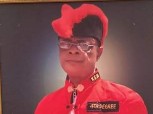
Society News
Chukwuemeka Odumegwu Ojukwu University staff, friends bid farewell to late legal icon, Sir Ignatius Obijiaku .
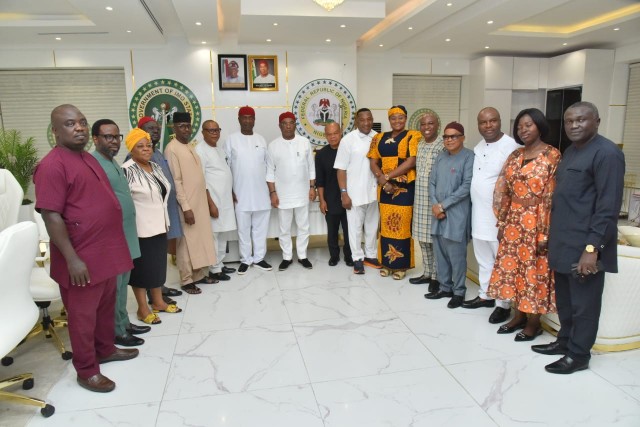
Education
Governing Council Federal Polytechnic, Nekede on courtesy visit to Imo State Governor, Hope Uzodinma.
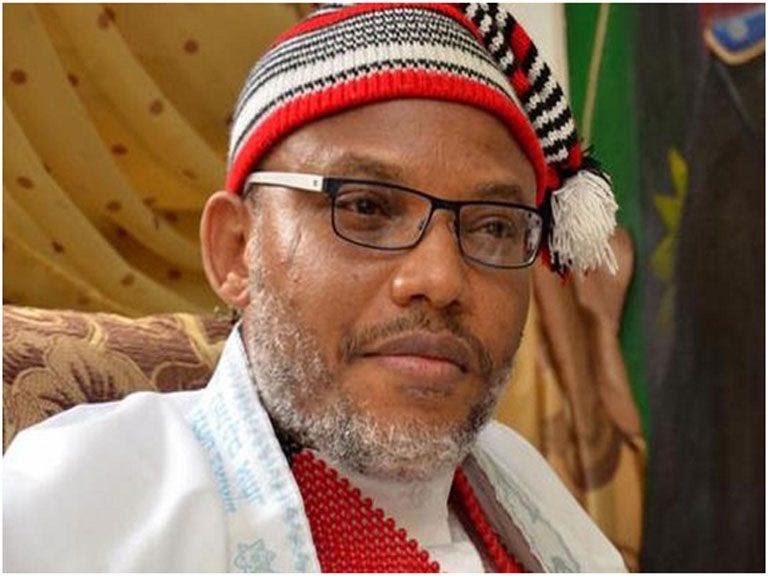
Cover Story
Labour Party caucus of southeast lawmakers asks President Tinubu to release Nnamdi Kanu.
Goup calls on Southeast governors to grant financial autonomy to state Houses of Assembly

Sports
John Cena announces his retirement from WWE after 22 years.
John Cena to step away from wrestling next year after a retirement tour

News
Tony Oneweek set to perform in the UK from July 13.
Gyration master to thrill fans in Bournemouth, Glasgow, Basildon, Manchester, others
Most Read Stories
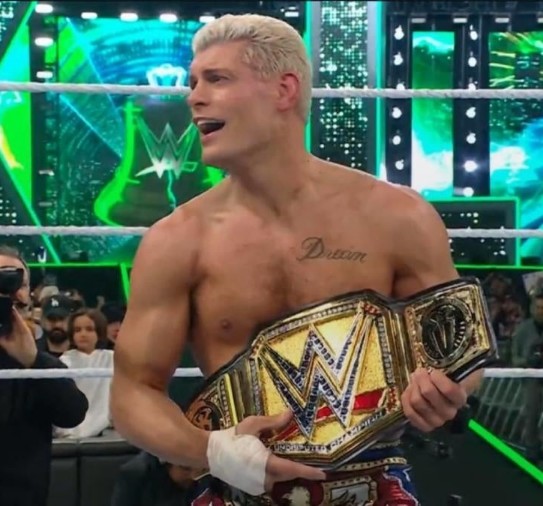
Sports
Wrestlemania XL: End of era as Cody Rhodes defeats Roman Reigns, finishes the story.
Roman Reigns was Undisputed WWE Universal Champion for 1316 days
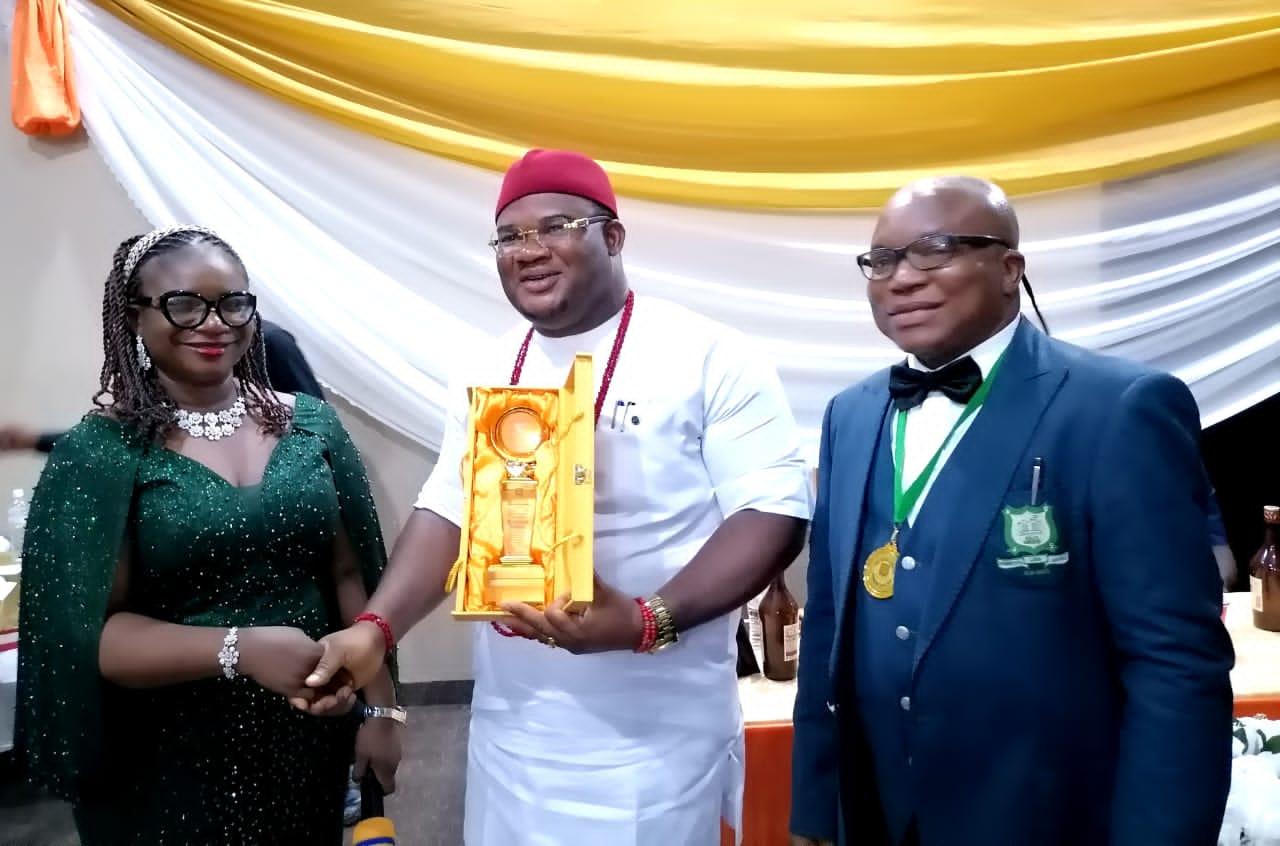
News
Dennis Junior Seminary Mbieri Old Boys hold AGM, give award to Nwabueze, others .
Pharm Chris Ukachukwu delivers lecture
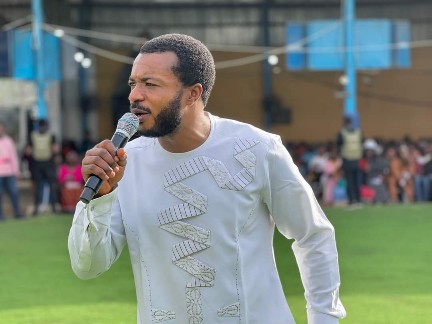
Cover Stories
Worship, eat and live: 100 caterers cook 10,000 bags of rice, 5,000 cows for Evang. Ebuka Obi, brother's birthday .

Sports
SummerSlam 2023: Cody Rhodes defeats Lesnar | Roman Reigns beats Jey Uso.
Iyo Sky cashes in Money in the Bank contract to win women’s title
Seth Rollins defeats Finn Balor
I read with melancholy befuddlement Chimamanda Adichie’s most embarrassing article ever to emanate from an Igbo intellectual feminist titled, “EMBRACING IGBO HERITAGE: Why I Chose to Keep My Father's Surname.” To quote her:
“I didn't change my surname to my husband's surname because I love my surname, and all my documents bear my father's surname. I don't have the strength to run around to change it. People often tell me that I am abusing Igbo culture by still bearing my father's surname. I laugh when I hear people say this. But the fact is that those women who bear their husband's surname are the ones abusing Igbo culture. In pre-colonial Igbo culture, women didn't bear their husband's surname; they bore their father's surname. Everything changed when the British colonized us. We then abandoned our own culture and followed British culture. In pre-colonial Igbo society, if a married woman died, her corpse would be returned to her father's home to be buried there. In pre-colonial Igbo culture, women belonged to their father's place; their husbands just borrowed them for both to live together and have children.”
I don’t know when Miss Chimamanda Adichie has become an expert in Igbo history and culture outside her literary escapades to the extent of assuming the champion of fabricated and poisonous concepts of Igbo feminism. However, to begin by positioning her in her chosen social context, I have chosen to address her as “Miss” rather than “Mrs.”, because in the eyes of Igbo ancestors and by the letters of the time-honored Igbo customs and tradition Miss Chimamanda Adichie remains unmarried.
Hear her: “I didn't change my surname to my husband's surname because I love my surname.” Does this statement not smack of naughty arrogance and abuse of the sacredness of marriage as defined respectively by Christian and Igbo worldviews from a woman who claims to be proudly Igbo and honorably married to a husband with masculine dignity and proud of his family heritage?
What indeed Miss Chimamada Adichie is telling the hosts of married Igbo women who adopted their husband’s names is that they never loved their fathers’ names and identities, neither are they proud of their family heritages. Moreover, one does not understand the exclusive heritage of having a Professor of Statistics as a father and a university Registrar as a mother that would make her abuse the manly integrity of her husband by refusing to adopt his surname in accordance with the dignity of a married Igbo woman.
Chimamanda Adichie is neither the greatest educated high-profile Igbo woman nor the most published female Igbo novelist. Buchi Emechete from Ibusa retained her maiden name because she officially divorced her husband Mr. Isichei in the United Kingdom. Flora Nwapa from Oguta changed her name to Flora Nwakuche on her marriage to Mr. Gogo Nwakuche. Flora Nwakuche was the greatest of all African Female Writers and, as Commissioner for Health and Social Welfare in East Central State, she was known as Mrs. Flora Nwakuche and not Nwapa, even though she retained Nwapa as her literary name.
Miss Chimamanda Adichie is yet to divorce her husband like Buchi Emecheta. The cases of Prof Ndi Okereke-Onyiuke and Dr. Ngozi Okonjo-Iweala should infinitely serve as a moral instruction to Miss Chimamanda Adichie. It should have been her private business if she had kept her choice private, but to wrongly and poisonously associate it with time-honored Igbo customs and tradition is an insult to the sacredness of marriage among the Igbo.
Dr. Ngozi Okonjo-Iweala, so far the greatest Igbo woman in contemporary times and by the facts of her personal carriage the most humble of all contemporary married Igbo women of high-profile achievers, took special permission from her husband to attach her father’s name in hyphenated format to her husband’s name. Her father was a renowned Professor of international repute and traditional ruler of her Ogwashi-Uku town, and her mother was equally a Professor.
Dr. Ngozi Okonjo-Iweala is by right of ancestral heirloom a Princess, yet she never addressed herself as such. All these parental achievements did not intoxicate her for once. Even in her pinnacle of achievement both as a Minister of the Federal Republic of Nigeria, and currently Director General of World Trade Organization, Dr. Ngozi Okonjo-Iweala still enters her kitchen to prepare food for her husband and adequately serves him as a humble and loving Igbo wife would do to her husband.
May be Dr. Ngozi Okonjo Iweala and other Igbo women had the strength to run around and change their documents to their Husband’s name, while Chimamanda Adichie has no such strength because of the insurmountable compendium of her library of documents. As she put it in her own words: “I don't have the strength to run around to change it.”
For the interest of future Igbo generations and especially those Igbo women currently drunken with despicable wine of Western feminism and licentious American freedom, marriage remains a sacred institution among the Igbo. And the fountain of this marriage is the man, on whose societal legitimacy a woman stands. In other words, the traditional legal identity of a fulfilled woman in Igboland is defined by her husband and not her father. This is embodied in the Igbo concept of “Di bu Ugwu Nwanyi” (husband is the pride of a woman). This concept is not only manifested in deeds but in definite identity.
This definite identity is expressed by the prefixed title of “Nwuye” (wife); in contradistinction to Ada (daughter). In other words, even though a woman is entitled to both identities, they cannot be applied at the same time. While a woman remains Ada to her father’s family, her identity changes to Nwunye once she becomes married. Thus by extension the term “Nwuye Anthony Nwaezeigwe” simply stands for Anthony Nwaezeigwe’s wife, which by Western acronym stands for “Mrs. Anthony Nwaezeigwe.”
In Ibusa where I come from, once a woman is married, her age notwithstanding, she automatically transforms to the dignified titles of “Okpoho-Oba” (Oba’s woman), meaning that she must be respected like the Wife of the Oba of Benin and, “Nwunye Madu”(Somebody’s wife), again a reminder that she is married and as such must be respected. In fact, up till the present moment, insulting a married woman, which is defined as “Ikwulu nwunye madu” attracts severe fines. Thus a woman’s dignity in the society is founded on her marital identity and not that of her father. This also explains why most of those prodigal Igbo women in the United States who kicked their husbands out their marital homes because of their enhanced incomes still retain their husbands’ surnames.
It is a truism that even till this modern age, the cardinal point of an Igbo woman’s achievement and fulfillment in life is measured not by her material acquisitions but her marital status. This is because the only place a woman has absolute control over her material possessions is at her marital family. Any other material possessions stored in her father’s house automatically belong to her paternal relatives and not her children; unless if tradition permits the adoption of her children into her paternal family. In that case, her children will have to adopt her father as their paternal father and hence surname. Beyond this exception, the woman has no ancestral inheritance in her father’s house. This is Igboland and not Yorubaland where a man’s apartment is shared room by room to both his sons and daughters after death.
Chimamanda Adichie’s insinuation that: “In pre-colonial Igbo culture, women didn't bear their husband's surname; they bore their father's surname. Everything changed when the British colonized us”; is the height of calculated fabrication of feminine identity construction in pre-colonial Igbo society. In the first place, the idea of surname in general is a totally European identity construction. So the claim that married women bore their father’s surname is false, unfounded and without basis in Igbo history and culture.
Once a woman is married in line with Igbo customary laws, she automatically changes her official customary identity from that of her father to that of her husband. Marriage under Igbo customs and tradition is not a social contract as defined by modern social sciences but a transformation from one family to another. For instance, when a woman is described as “Anasi”, it means she is the first or senior wife of her husband. In this case, can Chimamanda Adichie be addressed as “Anasi Chimamanda Adichie?” That will definitely amount to abomination. The only connection between the woman and her paternal family becomes defined by the gregarious Umuada group whose roles are infrequent and ad-hoc in character.
The only situations where a woman could retain her father’s identity both in pre-colonial times and present are, first, if she is unable to marry or got divorced without child; second, if in a situation where her father does not have a male child she is told to stay unmarried at her father’s household and procreate a male child to continue the family tree; and third, if as in the case of West Niger Igbo she decides to take the title of Omu (Traditional Queen), for which she must denounce all her marital identities and return back to her father’s family to take the title. In both the second and third instances, such positions automatically transform the woman to the status of a man. In some Igbo communities, the second instance could result to the woman being initiated into Ichi title.
Chimamanda Adichie’s further claim that: “In pre-colonial Igbo society, if a married woman died, her corpse would be returned to her father's home to be buried there”, is a falsity mixed with half-truth. The idea of married women being buried in their father’s compounds is an isolated case which, where it is practiced, is restricted only to the first daughter (Ada) and not to all the women. Among the Igbo of West Niger, the practice is notable among those towns with strong Igala connections like Asaba and Illah. Elsewhere, it is customary to bury a woman in her husband’s household.
It should be further stated that the concept of identity construction in traditional Igbo society was primarily based on extended family (Umunna) which is paternal in foundation. The idea or practice of surname never existed under Igbo customs and tradition. The Igbo normally would begin to identify somebody from his village down to his extended family and subsequently his nuclear family; unlike the modern practice in which identity proceeds from the individual up to the village. This explains why a number of Igbo surnames are traceable to their great grandfathers. In fact, it is an aberration of Igbo identity norms for a man to adopt his immediate father’s name as his surname. Such act is often interpreted as creating family gorge among the wider family.
Within the extended family level, the little children up to adolescent stage were identified by their mothers’ names. For instance, as a kid I was identified as “Anthony Nwa Eliza” within my father’s extended family, in reference to my mother’s name “Elizabeth.” But when I shifted to live with my grandmother in her kindred, I became known as “Anthony Nwa Adaozele”, in reference to my grandmother’s name “Adaozele.” Beyond this point, the identity graduates to “Nwa ndibe Onye?” (Child of which family?) By the time a man attains full maturity in the society, his village or title-name takes the center stage of his identity in the community.
So Chimamanda Adichie was threading on the terrain of fictitious narratives of traditional Igbo identity construction aimed to justify her unethical marital identity crisis. How can a woman who claims to be proud of her womanhood as Igbo hide her husband’s identity to not just the members of her Umunna (Extended family) but the society at large? Does it mean there is something weird about her husband’s identity or surname, or that she is not proud of her husband and his surname? Of course Chimamanda Adichie understands that were her husband to be an Igbo, that hypothetical abracadabra of using her father’s surname would not stand for a day, no matter how lowly such husband might be.
What the Igbo expect from people like Chimamanda Adichie who feel they are internationally connected and exposed, is to address some fundamental matters of urgent concern to the once celebrated dignity of Igbo motherhood founded on the elevated sacred concept of “Nneka” (Mother is supreme); and not to engage on destructive concepts of fabricated and untenable feminism.
The first fundamental matter of grave concern is the highly embarrassing marital crisis among the Igbo in the United States, which is often generated by those Igbo women who, taking advantage of the prodigious freedom accorded them by the laws of the United States, feel that their high income marks are licenses to undermine the once cherished close-knitted Igbo marriage culture by engaging on reckless humiliating divorce jamborees against their Igbo husbands. The Indian women, the Jews, and the Filipinos, in spite of their high income marks remain the most humble wives to their husbands, against the marginal achievements of Igbo women.
The second fundamental matter of grave concern is the endemic insecurity in Igboland orchestrated by rampaging Fulani herdsmen, and which has consumed many rural Igbo women. Indeed with her international clout, Chimamanda Adichie should have been in the forefront of mobilizing international forces to enthrone order and tranquility in Igboland.
In fact, since Chimamanda Adichie has chosen to bear her father’s surname as her surname after marriage, it simply means the redefinition of her sexual orientation from that of a woman to that of a man, which by extension must be manifested through such masculine responsibilities as finding a lasting solution to the insecurity in Igboland.
Nwankwo T. Nwaezeigwe, PhD, DD
Odogwu of Ibusa
President, International Coalition against Christian Genocide in Nigeria (ICAC-GEN)
Former Director, Centre for Igbo Studies, University of Nigeria, Nsukka
Email: Nwaezeigwe.genocideafrica@gmail.com
Credit | Visit us at https://icac-gen.org for more news and your financial support/May 25, 2024
Stories from the same author
All Headlines Categories Return
Recent Stories

|
News Unizik new Acting VC, Prof Carol Arinze-Umobi assumes duty, promises open-door administration. Prof Ikechebelu reverts to office as DVC Admin |

|
Society News Chukwuemeka Odumegwu Ojukwu University staff, friends bid farewell to late legal icon, Sir Ignatius Obijiaku . |

|
Education Governing Council Federal Polytechnic, Nekede on courtesy visit to Imo State Governor, Hope Uzodinma. |

|
Cover Story Labour Party caucus of southeast lawmakers asks President Tinubu to release Nnamdi Kanu. Goup calls on Southeast governors to grant financial autonomy to state Houses of Assembly |

|
Sports John Cena announces his retirement from WWE after 22 years. John Cena to step away from wrestling next year after a retirement tour |

|
News Tony Oneweek set to perform in the UK from July 13. Gyration master to thrill fans in Bournemouth, Glasgow, Basildon, Manchester, others |
Most Read Stories

|
Sports Wrestlemania XL: End of era as Cody Rhodes defeats Roman Reigns, finishes the story. Roman Reigns was Undisputed WWE Universal Champion for 1316 days |

|
News Dennis Junior Seminary Mbieri Old Boys hold AGM, give award to Nwabueze, others . Pharm Chris Ukachukwu delivers lecture |

|
Cover Stories Worship, eat and live: 100 caterers cook 10,000 bags of rice, 5,000 cows for Evang. Ebuka Obi, brother's birthday . |

|
Sports SummerSlam 2023: Cody Rhodes defeats Lesnar | Roman Reigns beats Jey Uso. Iyo Sky cashes in Money in the Bank contract to win women’s title Seth Rollins defeats Finn Balor |
